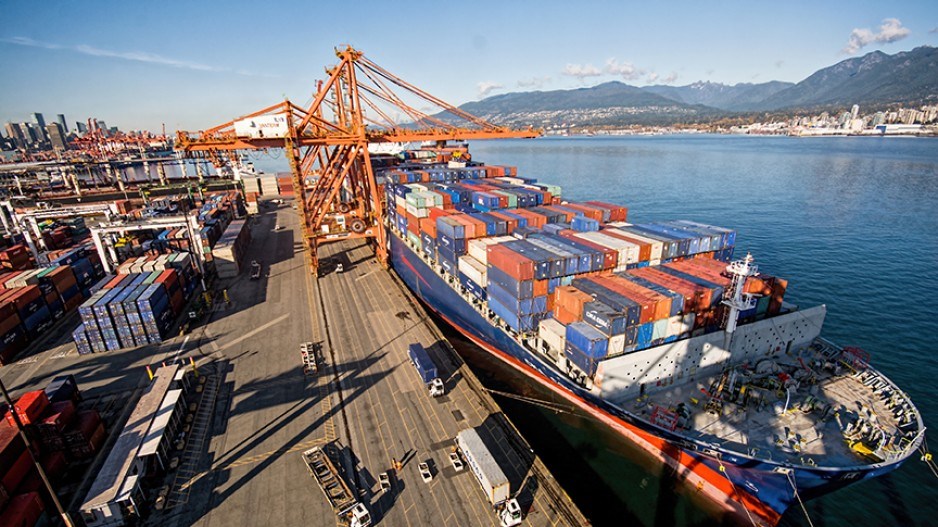A shortage of breathing masks, gloves and disposable coveralls for dockworkers has become a concern for the B.C. Maritime Employers Association (BCMEA) as most are reserved for healthcare workers.
“The requirement for N95 masks is the biggest concern, as use and demand has skyrocketed from others,” the association is quoted as saying in March 30 Western Marine Community Coalition records of discussion.
Protective equipment is also running low on Pacific Pilotage Authority vessels. The authority is working on protocols to ensure safety of ships’ pilots and other employees to continue ship movements.
And, terminals have reported they are encouraging proper hygiene and social distancing and are working on contingency plans in case of positive COVID-19 identifications. Terminal operators also report an inability to source protective gear for employees.
“Everybody’s running short on safety equipment,” International Longshore and Warehouse Union Canada president Rob Ashton said.
He said safety issues at terminals are being considered by joint union-employer safety committees on a case-by-case basis.
“If something comes up, it is being addressed,” Ashton said.
BCMEA operations vice-president John Beckett said strict operational protocols are in place for worker safety – although the scramble for safety equipment continues.
He said he has toured terminals with Ashton to assess situations on the ground.
“Anxiety is high on the waterfront,” Beckett said.
He said waterfront protocols are in place to handle issues such as deep cleaning, safety equipment, booking time off and returns to work.
However, the association has now seen two refusals to work. Those have been referred to Transport Canada. Both dealt with container lashing, which requires two people to work closely together, making the social distancing of two metres impossible.
Beckett said there have been “numerous refusals to work,” but, in the two cases, one was handled with a resolution through Transport Canada while the second was resolved through a local safety committee.
“There’s systems there to deal with these sorts of issues,” he said. “The systems work.”
Further, he said, there are also systems in place to track the health of seafarers.
And, he stressed, the ports are committed to remaining open to assure the flow of goods including medical and emergency supplies.
The coalition said B.C.’s Ministry of Transportation and Infrastructure is expected to announce details on its Provincial Supply Chain Coordination Unit, and that further information will soon be coming from Emergency Management BC.
The would be in charge of making sure medical goods and some other select products will get to health professionals and others in need. Retail stores are now required to report inventory of critical supplies to the province to ensure availability to frontline health workers.
Pacific Pilotage Authority has Ěýon how pilots can go to and from vessels on various parts of the coast, and on distancing pilots should maintain from crews.
Local logistics aside, COVID-19’s rapid erosion of world travel and trade has yet to significantly .
However, increased border closures and travel restrictions and global economic stagnation will inevitably slow goods demand and freight flow around the world.
@jhainswo
Ěý



